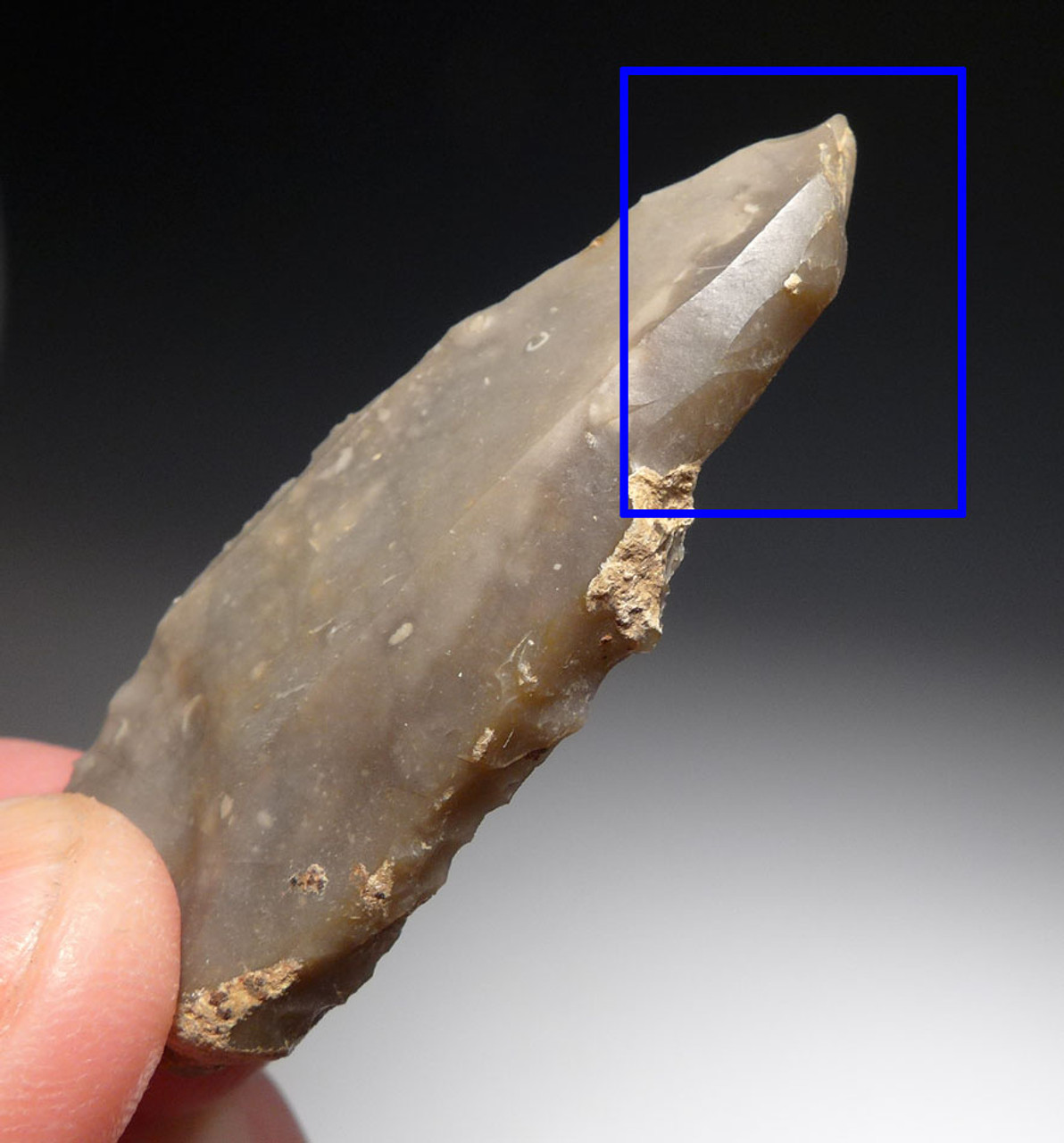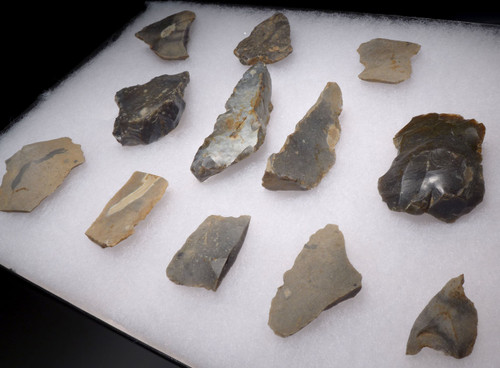Product Description
This prehistoric European Neolithic tool set includes the FINEST, unbroken expertly crafted flake tools and a blade tool core, made by the first inhabitants of what is now present day Belgium known as the Omaliens. These tribes were famous for being the first to practice farming and animal husbandry. Their tools represent extreme skill in craftsmanship and design being fashioned of the finest quality flint mined in this region of Europe. Tools from the Omaliens are rarely available for public sale and represent an excellent opportunity to acquire a genuine stone tool artifact from some of first agriculturalists of Europe!
Included is a large blade, a thumbnail scraper (with fantastic retouch flaking!), a burin engraver on a blade, and a blade tool core. All are different Neolithic typologies - each tool a perfect reference example of these different types. Each tool cutting edge shows prehistoric use. None are the typical plow damaged and broken pieces you usually see for sale in European Neolithic tools. All show mineral deposits and staining deep in the micro-crevices and flaking hinge fractures - traits ONLY found in AUTHENTIC ancient and prehistoric stone tools.
SEE MORE AND LEARN ABOUT EUROPEAN NEOLITHIC TOOLS
HISTORY
A big step forward in the history of humanity is the introduction of agriculture and stock breeding. About 10,000 years ago the earliest farmers emerge in the Ancient Near East. The new way of food production reached the Belgian region 4,000 years later with the majority of settlements found on Belgium's most fertile soils. The presence of large numbers of post holes on those sites clearly indicates that these people lived in large wooden long houses, divided in three parts (stable, living quarters and storage). With the advent of food production comes the need for a second innovation - pottery.
Although the Omaliens were present for thousands of years, they mysteriously disappeared leaving only their black, richly decorated pottery with loop handles for hanging, millstones and well-made tools. No graves, or urns of ashes have been found and most particularly, no weapons, indicating a peace-loving people.
 US DOLLAR
US DOLLAR
 EURO
EURO
 AUSTRALIAN DOLLAR
AUSTRALIAN DOLLAR
 CANADIAN DOLLAR
CANADIAN DOLLAR
 POUND STERLING
POUND STERLING






















